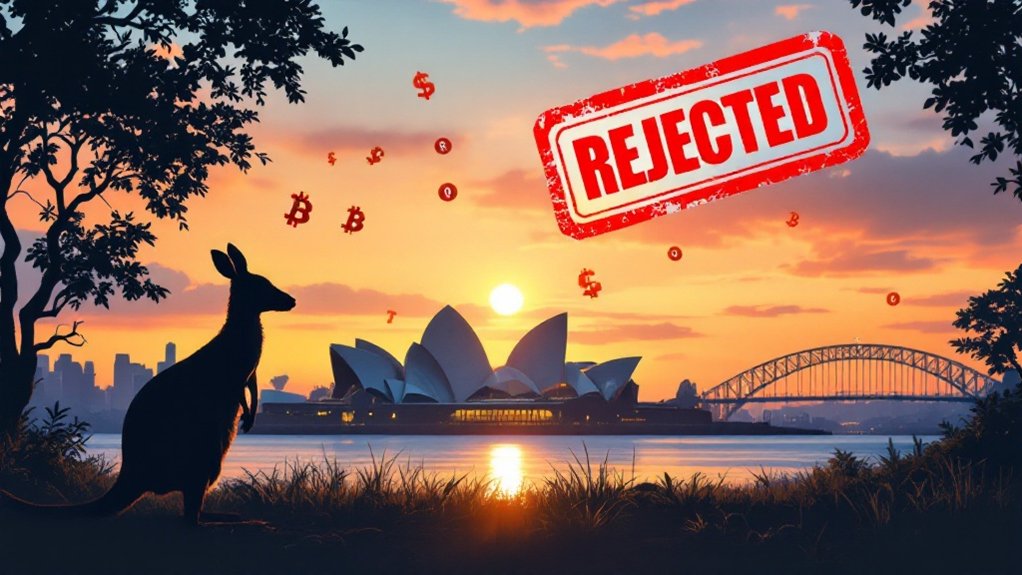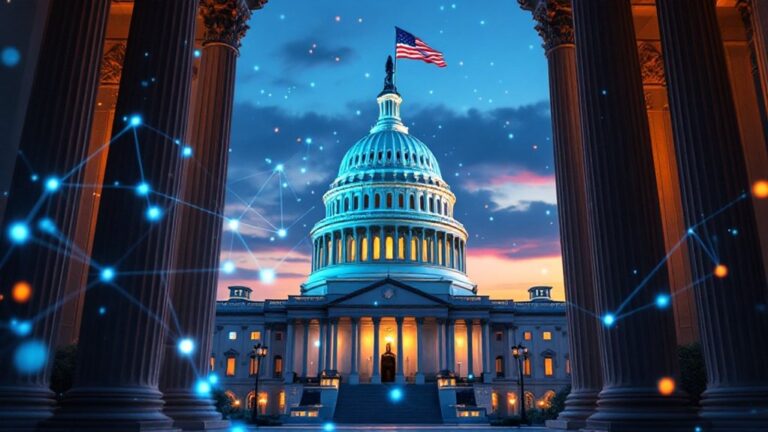Australia Rejects Trump’s Crypto Reserve Proposal
Australian officials have explicitly rejected proposals for establishing a national cryptocurrency reserve, marking a clear departure from Trump's U.S. digital asset initiative. Assistant Treasurer Stephen Jones emphasized Australia's focus on developing "fit-for-purpose" crypto regulation rather than public investment schemes. The announcement coincided with significant market volatility, as Bitcoin fell 8%, XRP dropped 18%, and Cardano's ADA declined 23%. Australia's measured approach to cryptocurrency oversight reveals broader implications for global digital asset policy.
Highlights
- Australian government explicitly rejects proposals to establish a national cryptocurrency reserve, distancing itself from Trump's U.S. initiative.
- Assistant Treasurer Stephen Jones emphasizes Australia's focus on developing proper cryptocurrency regulation rather than public investment strategies.
- Australia maintains its commitment to thorough oversight measures while collaborating with AUSTRAC and ASIC to combat crypto fraud.
- Market volatility following Trump's U.S. crypto reserve announcement, including significant price drops, reinforces Australia's cautious approach.
- Australian officials prioritize careful consideration and measured regulatory reform over rapid adoption of aggressive cryptocurrency strategies.
The Australian government has firmly rejected proposals to establish a national cryptocurrency reserve, distancing itself from former U.S. President Donald Trump's recent announcement of a strategic U.S. crypto reserve initiative. Assistant Treasurer Stephen Jones emphasized that Australia's focus remains on developing fit-for-purpose crypto regulation rather than public investment in digital assets.
The decision comes amid significant market volatility following Trump's announcement of a U.S. cryptocurrency reserve that would include Bitcoin, Ethereum, and XRP. While initial market reaction saw prices surge, a substantial correction followed, with Bitcoin falling more than 8%, XRP declining nearly 18%, and Cardano's ADA dropping 23%.
Australia's regulatory approach has drawn criticism from industry stakeholders who argue that the government's progress on cryptocurrency frameworks has been too slow. Officials maintain their commitment to working with regulatory bodies such as AUSTRAC and ASIC to combat fraud while developing thorough oversight measures for the digital assets sector.
Despite industry frustration over slow regulatory progress, Australian officials remain focused on developing comprehensive oversight through key financial watchdogs.
Skepticism surrounding Trump's proposed U.S. crypto reserve has emerged from various industry figures, including Coinbase CEO Brian Armstrong, who suggested a Bitcoin-only reserve would be more practical. Critics have questioned the inclusion of smaller market cap cryptocurrencies and raised concerns about reserve management strategies.
The political fallout from Trump's announcement has been significant, with both industry insiders and the public expressing doubts about the feasibility and motivation behind the reserve proposal. "We acknowledge the potential of blockchain technology and digital assets for our economy," Jones stated, "but our priority is establishing robust regulatory frameworks rather than speculative investment of public funds."
Public sentiment has been strikingly critical, with many viewing the U.S. reserve proposal as politically motivated rather than economically sound. Australian officials have maintained their steady approach to crypto regulation, emphasizing the importance of careful consideration over rapid adoption of controversial policies. The government's position reflects a growing divide between nations pursuing aggressive cryptocurrency strategies and those favoring more measured regulatory reform.






